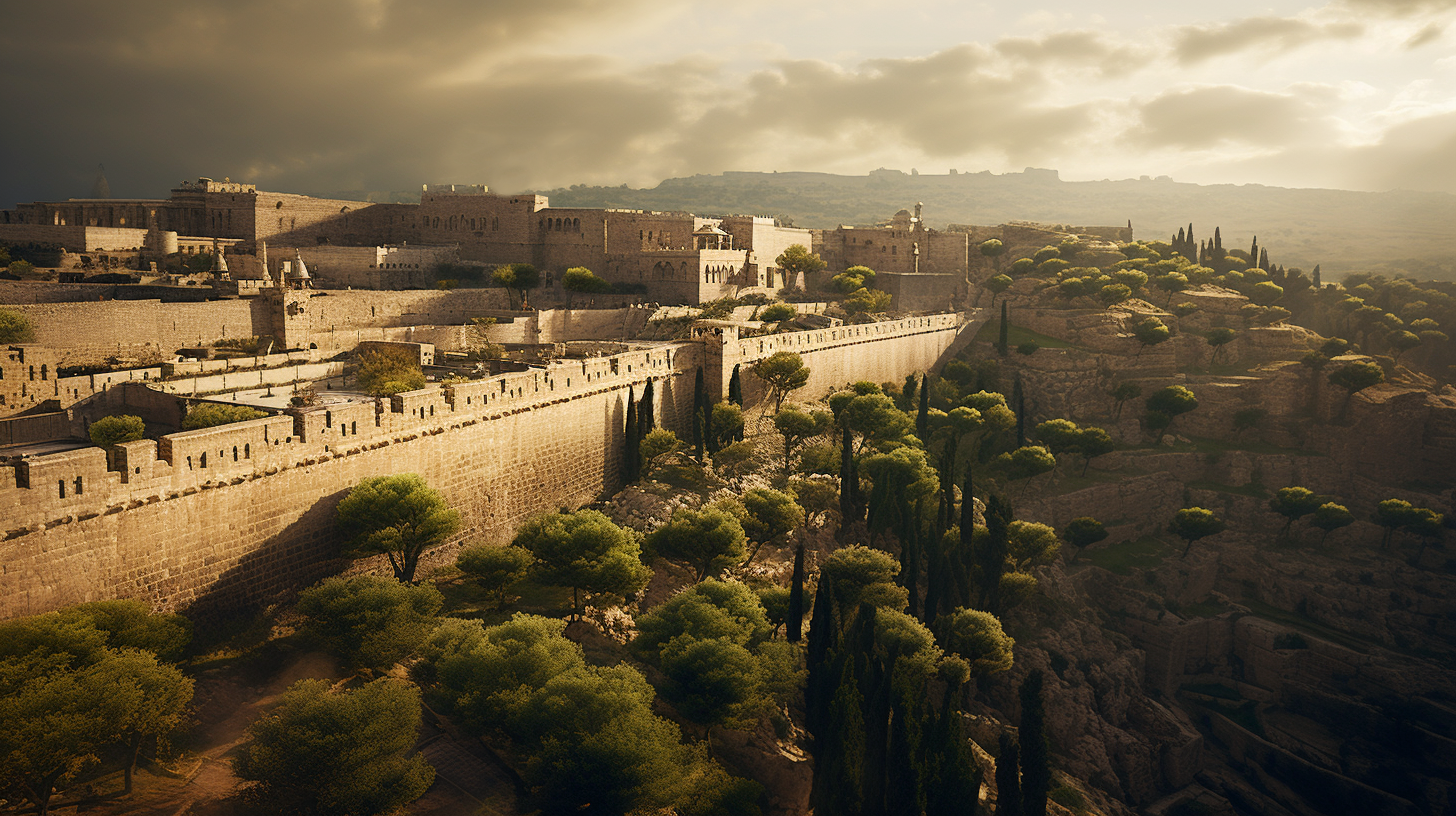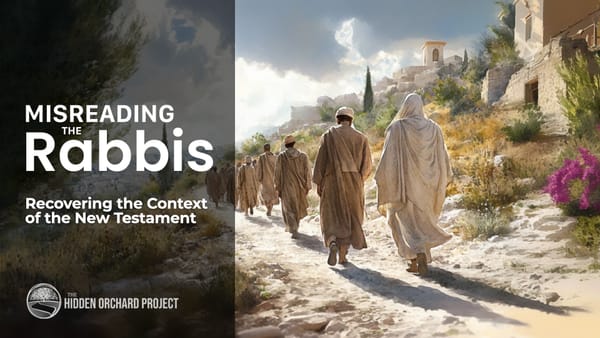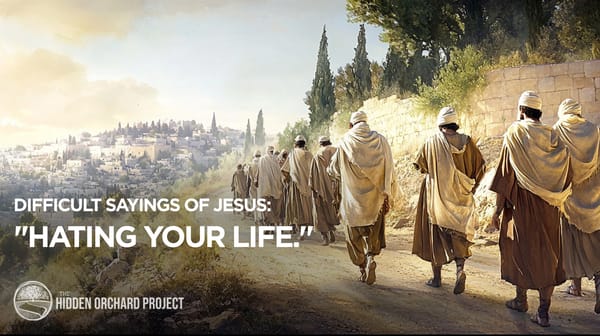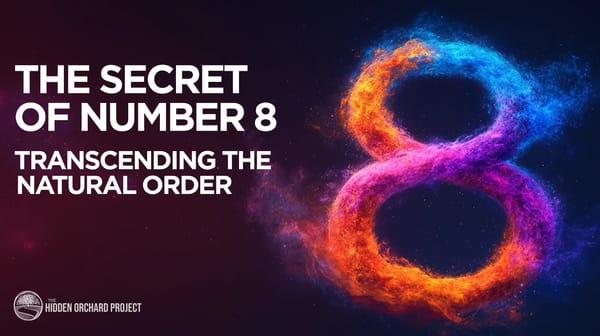Bitachon: The Cornerstone of Inner Peace and Resilience
Cultivating Bitachon (Trust) and embedding it more deeply into our psyche is a lot easier said than done. Often progress comes through hard times and significant life trials, similar to those we see in Abrahram's life.
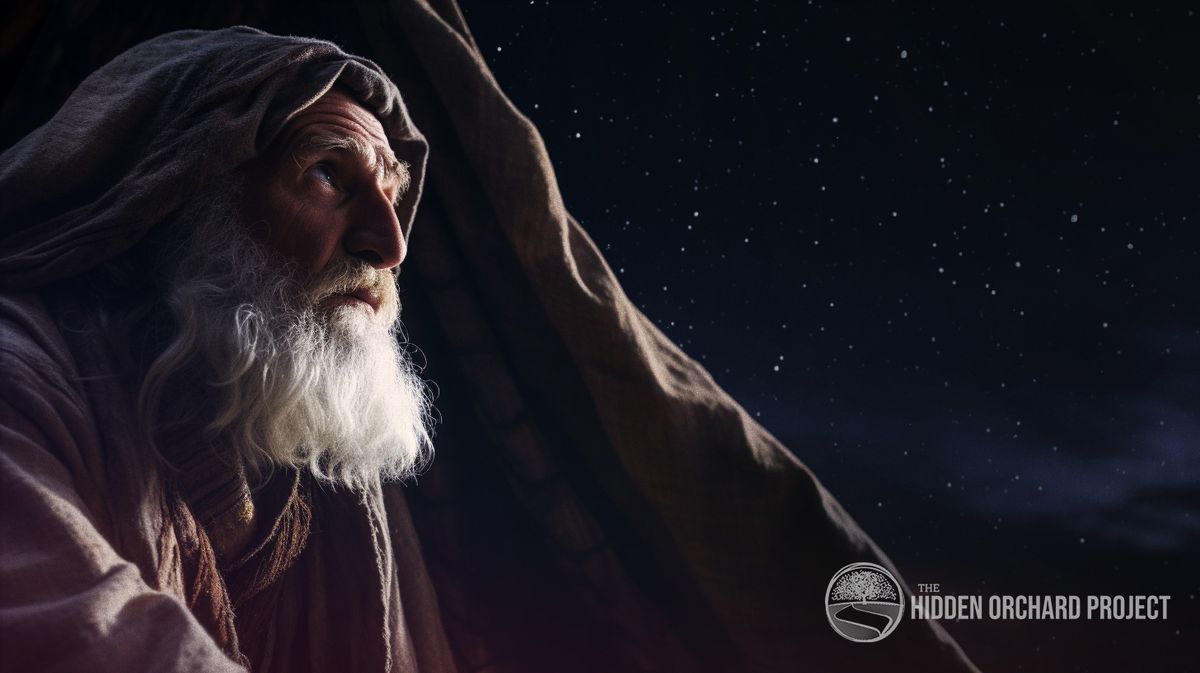
Confronted with many harrowing trials, Abraham's life story imparts to us what may be the most reliable tool and guiding force we have to navigate the darkness and difficulties of life - Bitachon.
Appearing numerous times throughout the Bible, Bitachon (בטחון) is translated simply as "trust," or "confidence." Although often used interchangeably with Emunah¹ (faith) and sometimes Tikvah (hope), these concepts are all related but distinct. You might say that Bitachon is Emunah in action.
In a deeper sense, Bitachon might be better defined as:
The active Trust that the Creator controls everything at all times and that all He does is for the ultimate good.
Cultivating Bitachon and embedding it more deeply into our psyche is a lot easier said than done. Often progress comes through hard times and significant life trials, similar to those we see in Abraham's life.
The Call to Trust
Genesis 12 opens with G_D's call to Abraham, instructing him to leave his homeland, his family, and everything familiar to him. This could be viewed by some as counter-cultural and utterly reckless.
For context, this encounter happened in the same region and at the same time as the dispersion at Babel². This juxtaposition is intentional.
Immediately after humanity's arrogant attempt to replace G_D with their own ingenuity, Avram is offered the chance to take humanity towards a different route - to trust in the Creator alone.
G_D simply says to Abraham, "Go forth from your native land and from your father's house to the land that I will show you."³ G_D proceeds to add a few high-level promises, and the text tells us that Abraham "went forth."
The Torah does not give us any more than this. No drawn-out discussions, or clarifying questions. Neither did Abraham ask for any specifics as to where he was going!
The intrigue of this gap in the story is pondered through a Midrash. In the Midrash, there is a little more conversation that takes place where G_D elaborates on Abraham's future progeny, and that his life will have a global-scale impact on humanity.
Perhaps with some degree of disbelief, Abraham points to the stars and tells the Creator that he will not be able to have children. See, Abraham was from a nation that excelled in the sciences of Astrology. At that moment, he was still influenced by this understanding, presuming his fate to have been sealed in the heavens.
Hearing Abraham out, the Creator then moved a single celestial body across the sky, altering Abraham's astrological outlook, and demonstrating that Abraham should recalibrate his trust beyond the heavens.

Cultivating Trust
Though Western culture does not rely on the wisdom of astrologers as in ancient Mesopotamia, or reading the entrails of goats as in Assyria, we certainly have modern misappropriations of trust.
Whether in Political parties or Presidents; the false sense of security of technological and military might; or other man-made institutions - many will be left without a backup plan when these ultimately fall apart. If this is you, begin to reframe your perspective today.
In his classic work, "Duties of the Heart", Rabbi Bachya ibn Pakuda warns us that putting our trust in the wrong things will cause them to be taken from us. In one example, he writes:
If one relies on their great wealth, it will be taken away from them and left to someone else...
The Psalms tell us that Bitachon [in the Creator] will help us avoid unnecessary difficulty and surround ourselves with Chesed (favor)⁴. Coupled with prayer, the study of Scripture, and Bitachon - we actually create a powerful Segulah (protection) to shield us from much of life's hardships.
Even in times of war, King David understood this:
Should an army besiege me, my heart would have no fear; should war beset me, still would I trust.
- Psalm 27:3
Additionally, we're told that those who trust will never be abandoned by the Creator⁵. In fact, the very work of Israel is to trust in Hashem⁶ above all else. Many of the worst failures in the Bible came about through a deficiency of Bitachon in Hashem. The Sin of the Golden Calf, the Sin of the Spies, and so on.
We are warned not to place trust in the creation, particularly mankind⁷. Adding to this prohibition, the Prophet Jeremiah⁸ warns us that this mistake can bring a curse upon all we do.
Shockingly, many sources tell us that the protections available through Bitachon are available to anyone, even someone who is considered to be evil!
Even an evil person who trusts in G_D will be surrounded by favor - Midrash on Psalm 32:10
On this, the Leshem writes;
This is why it says: "Trust G_D and do good." (Psalm 37:3). From this we learn that trust in G_D does not depend upon good deeds at all, but rather one should trust in G_D whether righteous or evil.
Of course, we do not negate observance of G_D's wisdom, but by doing so without Bitachon, we may be missing out on the underutilized key to the dark times ahead.
Building Trust
When the world seems out of control, it is easy to feel lost and hopeless. In these moments, we should begin to practice moving into this mindset of Bitachon daily.
This shift will transform our perspective, making teachable moments of current events, and shaping them into a proving ground for spiritual growth.
Here are some tools to get started.
Look to the Past
Take a moment to think back to a moment of fear in your life. How has this moment shaped who you are today? How did the Creator come through for you? Was it apparent in the moment, or only after that the Creator was present? Even if challenging, what good came from these events?
Look at the Present
What are you struggling with right now? Scenario play how this trial might eventually be for the good in the future - short or long term. Can you find the spark of light in the darkness?
Using your full imaginative capacity, take a moment to envision how you will end up better through this experience. See yourself on the other side, stronger, and more resilient. Through this process, you will actually help to shape reality through the use of intention.
What Can I Do Now?
Bitachon does not mean throwing personal responsibility overboard. The physical world is still a part of our reality.
As I was once taught, David was promised Kingship, but he still had to throw the stone when confronted by Goliath. Abraham too was promised much, but he still had to pack up his belongings and walk.
When trouble is on the foreseeable horizon, we should take the right steps to prepare for the physical reality of life and the challenges that are most probable in our environment. We should save money, and store some necessities, but always anchor these preparations within Bitachon, never fully relying upon our own resourcefulness.
Practice Often
When we are faced with moments of doubt or anxiety, pause, acknowledge the feeling, and make a concerted effort to repeat the following mantra. Recite the words aloud and with intention until they settle in.
ישראל בטח ביהוה
Yisrael, b'tach baAdonai!
!Israel, trust in Hashem
Hey, Want to Learn More?
If you are interested in learning more about this topic, I highly recommend the book referenced above, "Duties of the Heart."
A work titled, "Gate of Trust" (Shaar haBitachon) has been produced as a separate work, which is one section of Duties of the Heart that is entirely devoted to the development of Bitachon.
Notes:
¹ https://www.thehiddenorchard.com/how-we-get-faith-wrong/
² https://www.thehiddenorchard.com/babel-and-the-ethics-of-technology/
³ Genesis 12:1
⁴ Psalm 32:10
⁵ Psalm 9:11
⁶ Paslm 115:9
⁷ Psalm 146:3
⁸ Jeremiah 17:5

